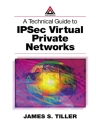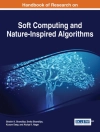Cryptography is concerned with the construction of schemes that withstand any abuse.
A cryptographic scheme is constructed so as to maintain a desired functionality, even under malicious attempts aimed at making it deviate from its prescribed behavior. The design of cryptographic systems must be based on firm foundations, whereas ad hoc approaches and heuristics are a very dangerous way to go. These foundations were developed mostly in the 1980s, in works that are all co-authored by Shafi Goldwasser and/or Silvio Micali. These works have transformed cryptography from an engineering discipline, lacking sound theoretical foundations, into a scientific field possessing a well-founded theory, which influences practice as well as contributes to other areas of theoretical computer science.
This book celebrates these works, which were the basis for bestowing the 2012 A.M. Turing Award upon Shafi Goldwasser and Silvio Micali. A significant portion of this book reproduces some of these works, and another portion consists of scientific perspectives by some of their former students. The highlight of the book is provided by a few chapters that allow the readers to meet Shafi and Silvio in person. These include interviews with them, their biographies and their Turing Award lectures.
Mục lục
- Preface
- Acknowledgments
- Photo and Text Credits
- PART I BIOGRAPHIES, INTERVIEWS, AND AWARD LECTURES
- A Story Behind Every Problem: A Brief Biography of Shafi Goldwasser
- One Obsession at a Time: A Brief Biography of Silvio Micali
- An Interview with Shafi Goldwasser
- An Interview with Silvio Micali
- The Cryptographic Lens: Shafi Goldwasser’s Turing Lecture
- Proofs, According to Silvio: Silvio Micali’s Turing Lecture
- PART II ORIGINAL PAPERS
- Probabilistic Encryption
- The Knowledge Complexity of Interactive Proof Systems
- How to Generate Cryptographically Strong Sequences of Pseudorandom Bits
- How to Construct Random Functions
- A Digital Signature Scheme Secure Against Adaptive Chosen-Message Attacks
- Proofs that Yield Nothing but Their Validity or All Languages in NP Have Zero-Knowledge Proof Systems
- How to Play Any Mental Game: A Completeness Theorem for Protocols with Honest Majority
- Non-Interactive Zero-Knowledge (NIZK) Proof Systems
- Completeness Theorems for Non-Cryptographic Fault-Tolerant Distributed Computation
- Multi-Prover Interactive Proofs: How to Remove Intractability Assumptions
- PART III PERSPECTIVES
- On the Foundations of Cryptography
- On the Impact of Cryptography on Complexity Theory
- On Some Noncryptographic Works of Goldwasser and Micali
- Fundamentals of Fully Homomorphic Encryption
- Interactive Proofs for Lattice Problems
- Following a Tangent of Proofs
- A Tutorial on Concurrent Zero-Knowledge
- Doubly Efficient Interactive Proofs
- Computational Entropy
- A Survey of Leakage-Resilient Cryptography
- Editor and Author Biographies
Giới thiệu về tác giả
Oded Goldreich was born on February 4, 1957, in Israel. He received B.A., M.Sc., and D.Sc. degrees in Computer Science at the Technion—Israel Institute of Technology in 1980, 1982 and 1983, respectively. He was a postdoctoral fellow at MIT’s Laboratory for Computer Science (1983–1986). Since 1995, he has been on the faculty of the Department of Mathematics and Computer Science of the Weizmann Institute of Science (Israel), where he is the incumbent of the Meyer W. Weisgal Professorial Chair. His current research interests include probabilistic proof systems, property testing, pseudorandomness, and complexity theory at large. Oded has made numerous contributions to the theory of computation, most notablly to the foundations of cryptography, pseudorandomness, probabilistic proof systems, property testing, and complexity theory at large.
He is the author of several books, including Foundations of Cryptography: Volumes 1 and 2 (2001 and 2004), Computational Complexity: A Conceptual Perspective (2008), P, NP, and NP-Completeness: The Basics of Complexity Theory (2010), and Introduction to Property Testing (2017).
Oded is an associate editor of the journal Computational Complexity, and was an editor of Journal of Cryptology and SIAM Journal on Computing. He has been an invited speaker at various conferences, including the 1994 International Congress of Mathematicians (ICM) and the Crypto ’97 conference. He is a Corresponding Fellow of the Bavarian Academy of Sciences and Humanities, a Fellow of the International Association for Cryptologic Research (IACR), and a winner of the 2017 Donald E. Knuth Prize.












